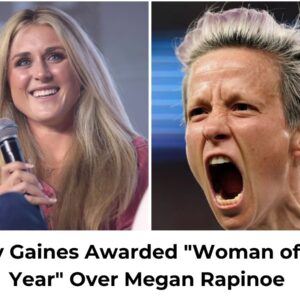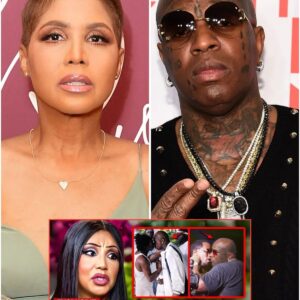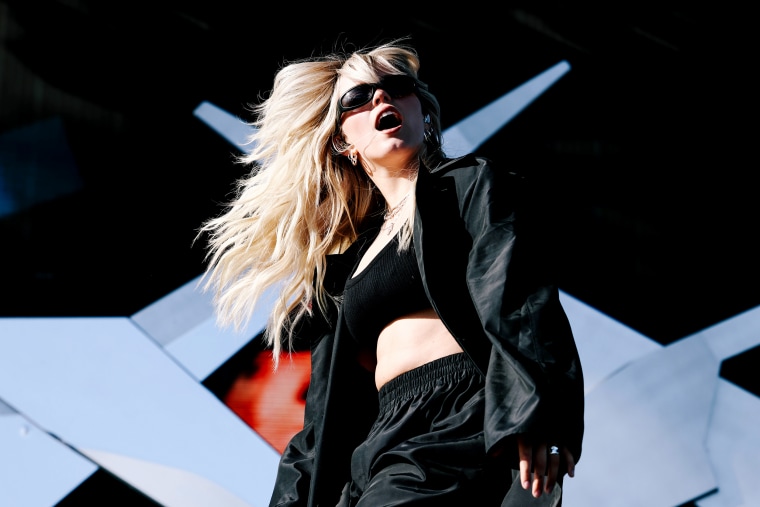
The recent Coachella music festival showcased this transformation vividly, with pop star Reneé Rapp leading the charge. Her electrifying performance, complete with a kiss between her and her guitarist girlfriend Towa Bird, symbolized a new era of unabashed queer visibility on stage. Joined by bisexual icon Kesha for a powerful rendition of “TikTok,” Rapp exemplified the unapologetic celebration of queerness permeating the music scene.
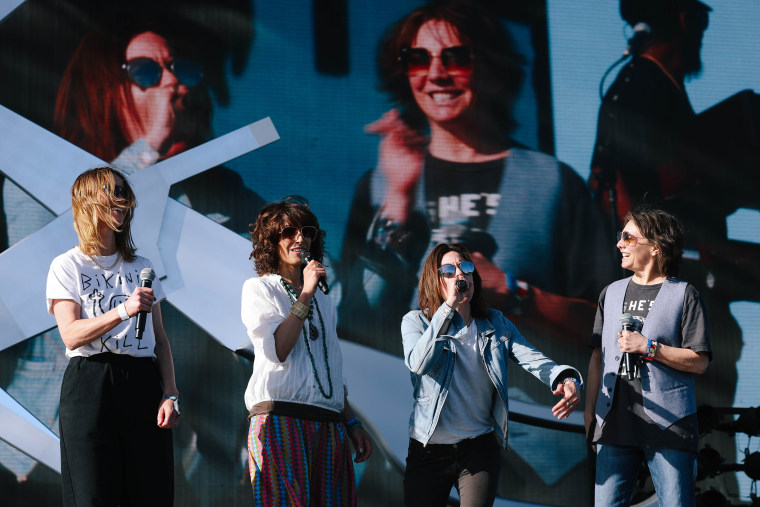
Rapp’s presence at Coachella was not an anomaly but part of a larger trend. The festival also featured a lineup of queer artists, including Chappell Roan, Ludmilla, Brittany Howard, Victoria Monét, and Billie Eilish, all making waves in the industry. Their inclusion reflects a growing acknowledgment of the diverse voices shaping contemporary music.
This shift extends beyond festivals to prestigious events like the Grammy Awards, where artists like Phoebe Bridgers and Miley Cyrus have claimed the spotlight. Tracy Chapman’s return to the stage after two decades further underscores the resurgence of queer women in music.
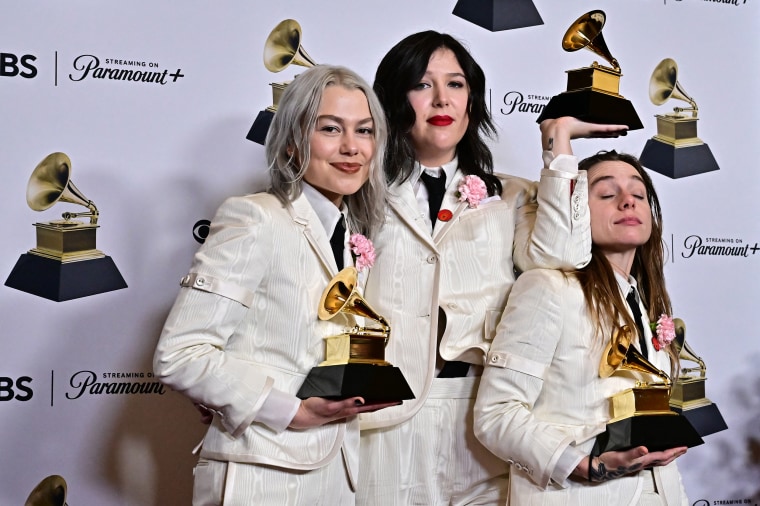
However, this newfound visibility represents a departure from historical norms. For too long, LGBTQ women faced barriers to recognition, forced to conceal their identities to appease industry standards. Despite their pivotal role in shaping genres like rock ‘n’ roll, rhythm and blues, and pop, their contributions remained overlooked.
The emergence of feminist movements in the ’70s provided a platform for women in music, leading to the creation of women-run record labels and festivals. Artists like Tracy Chapman, Melissa Etheridge, and the Indigo Girls became icons within this burgeoning community, challenging the industry’s heteronormative norms.
Despite progress, challenges persist. Women-centric festivals are dwindling, and female headliners remain underrepresented. Initiatives like Book More Women aim to address this disparity, advocating for greater gender diversity in festival lineups.
Yet, amidst these challenges, queer women continue to carve out spaces for themselves. Fan Girl Cafe, founded by Betsy Martinez and Cynthia Temblador, celebrates women in music, providing a safe haven for fans and artists alike.
As artists like Zolita prepare to tour, their unapologetic embrace of queerness defies industry expectations. Their stories of love and empowerment resonate with audiences, driving home the message that authenticity is the ultimate form of artistry.
In a music industry long dominated by heteronormative standards, queer women are claiming their rightful place in history, ushering in a new era of diversity and inclusion.
News
Whoopi Goldberg Ejected from “The View” After Defending Megan Rapinoe
In a dramatic and unexpected development, Whoopi Goldberg, a co-host of “The View,” was abruptly removed from the show after vocally supporting Megan Rapinoe during a heated discussion. Goldberg, renowned for her candid and forthright commentary, passionately defended Rapinoe amid…
Riley Gaines Awarded “Woman of the Year” Over Megan Rapinoe
Riley Gaines Awarded “Woman of the Year”: A Controversial Decision In a surprising turn of events, Riley Gaines, a distinguished collegiate swimmer, has been awarded the prestigious “Woman of the Year” title, surpassing the well-known soccer star Megan Rapinoe. This…
WNBA Opens Investigation: Star Caitlin Clark Was “Played Unfairly”?
WNBA Opens Investigation: Star Caitlin Clark Was “Played Unfairly”? In a surprising and significant move, the Women’s National Basketball Association (WNBA) has announced an official investigation into claims that star player Caitlin Clark was “played unfairly” in recent games. This…
Surprise! NCAA strips Lia Thomas of her medal and gives it to Riley Gaines?
In a groundbreaking and decisive move, the National Collegiate Athletic Association (NCAA) announced the complete transfer of all medals awarded to Lia Thomas to fellow swimmer Riley Gaines. This unprecedented decision marks a significant shift in the ongoing discourse surrounding…
Toni Braxton EXPOSES Why She Could Never Marry Birdman
Toni Braxton Calls it Quits: Birdman’s Alleged Secret Life Leads to Breakup Toni Braxton fans were shocked earlier this year when news broke of her split from rapper Birdman. While rumors of a fairytale wedding had swirled for years, Braxton…
Diddy Is FINISHED After SHOCKING Videos Expose Him With Justin Bieber and Jaden Smith
Diddy Hit With Shocking Allegations: Mentor or Manipulator? Sean Combs, better known as Diddy, is no stranger to controversy. However, recent rumors swirling around his past mentorship of Justin Bieber and Jaden Smith have taken things to a new level….
End of content
No more pages to load

